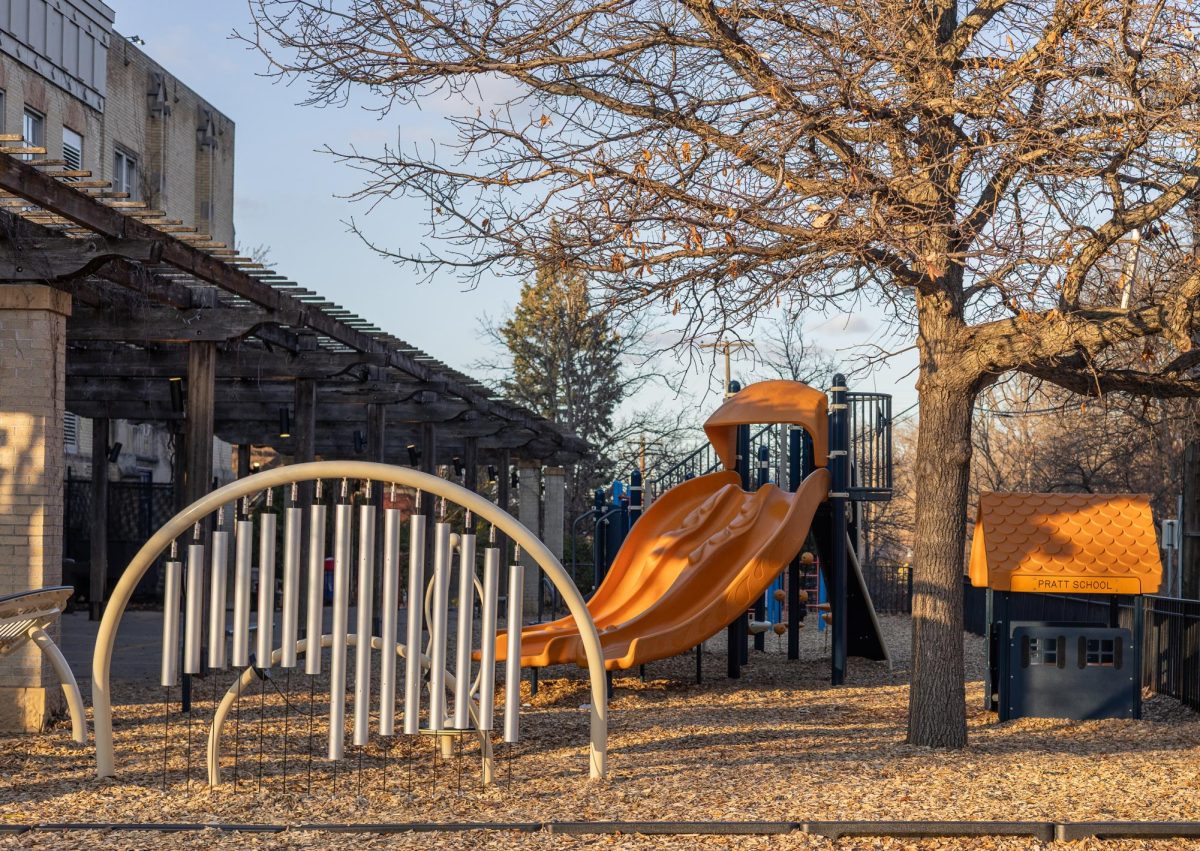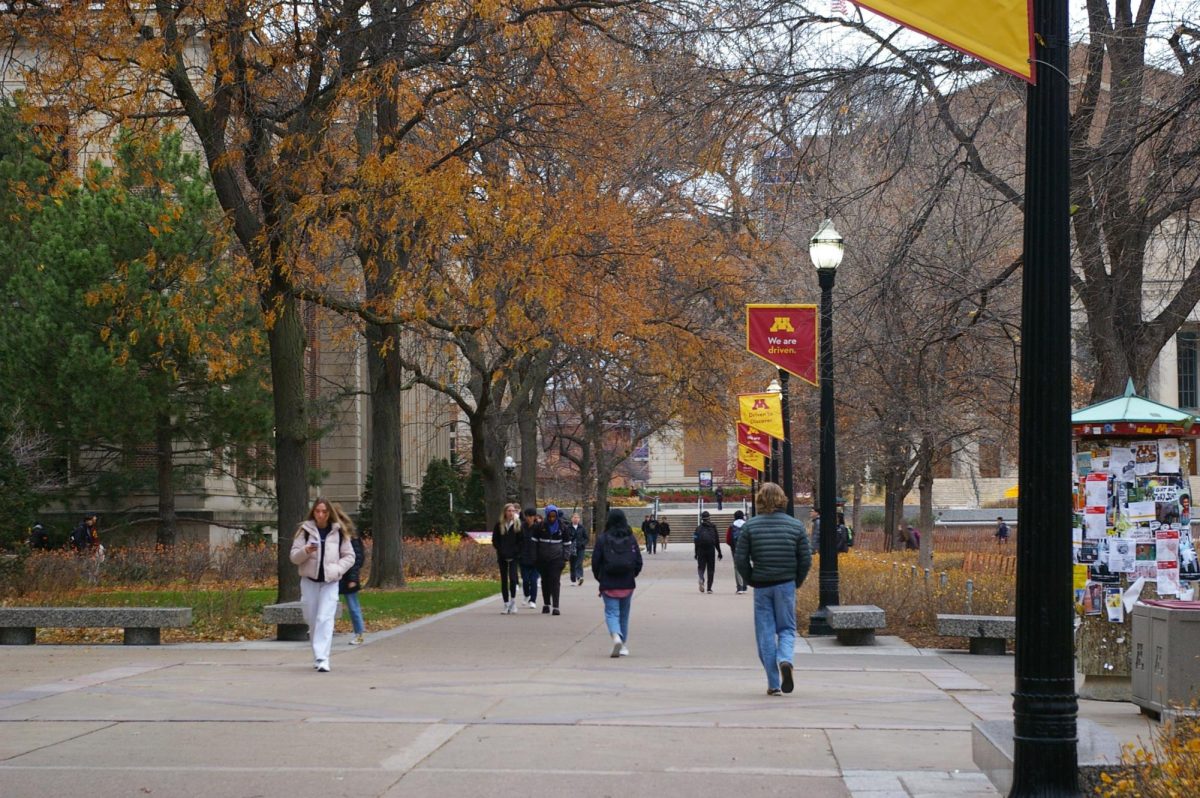As President Donald Trump’s administration has opened up college campuses for Immigration and Customs Enforcement, questions about how international students and students who recently immigrated to the U.S. will be impacted have grown.
To answer those questions, the Minnesota Daily spoke with Nadia Anguiano, a University of Minnesota Law School professor and director of the University’s Federal Immigration Litigation Clinic, about what students should know about ICE enforcement on and near college campuses.
The Minnesota Daily: What reason is ICE giving for detaining international students on college campuses?
Nadia Anguiano: “What we’ve seen at Tufts and Columbia in particular, the cases that I think have been well publicized, so Mahmoud Khalil and Yunseo Chung, the stated reason that the Department of Homeland Security has given is actually a pretty obscure ground of the deportability that has actually, based on publicly available data, only been used about 15 times in its 35-year history before the case of Mr. Khalil.”
This ground of removal essentially states that it applies to non-citizens whose presence or activities in the United States, the secretary of state has reasonable grounds to believe, would have potentially serious adverse foreign policy consequences on the United States.
Secretary of State Marco Rubio has essentially said, or at least the implication if not a precise statement, is that the non-citizen’s pro-Palestinian activism has created a hostile environment for Jewish students on campus and that that’s detrimental to the United States’ foreign policy objectives with Israel.”
- Anguiano is referring to a provision of the Immigration and Nationality Act about foreign policy. Rubio and other Trump administration officials have referenced a provision of the Immigration and Nationality Act and implied that protesters like Khalil were detained or deported for creating a hostile environment for Jewish students.
- On March 7, Trump’s administration’s Joint Task Force to Combat Antisemitism announced they would cut $400 million in federal grants and contracts from Columbia University over antisemitism “inaction.” Columbia later agreed to demands to punish pro-Palestinian student protesters.
Anguiano: “One thing important to highlight here is that I mentioned the Department of Homeland Security has very rarely used (the provision). This is not fully confirmed, but based on available information, before Columbia student Mr. Khalil’s detention, I don’t think it had been used against a lawful permanent resident, which is one more secure status than just a visa.”
- Khalil is a lawful permanent resident who moved to the U.S. in 2022 and received his graduate degree from Columbia. He is married to Noor Abdalla, an American citizen, who is eight months pregnant with her and Khalil’s first child.
Anguiano: “The implications of using this, we’ll call it ‘the foreign policy removal grounds,’ are pretty severe. If you think about how it can be used, it’s by no means limited to non-citizens who engage in pro-Palestinian speech. For example, students who have a view about the presence of Ukrainians who are critical of Russia or economists skeptical of the tariffs in Canada, Mexico and China could all suddenly be considered as adverse to U.S. foreign policy interests and subject to deportation based on this ground.”
- Trump announced a tariff policy with all U.S. trade partners — including Canada, Mexico and China — on Wednesday. The policy included a 10% tariff on all imports.
Anguiano: “This ground of removability actually says it should not apply to cases involving speech.
Congress said if you’re gonna apply this deportation ground to people’s beliefs and speech, there needs to be pretty egregious conduct in a heightened showing of why this is adverse to the United States (foreign policy) versus, conduct that’s more clear for the Secretary to say this is adverse to the interests of the United States.
ICE is stating these reasons for detention and canceling visas, but doing so in very procedurally irregular ways. What I mean by that is, for example, the Minnesota student, his lawsuit alleges that he was detained while the system still showed his visa to be valid. He was detained and it wasn’t until several hours later that his visa showed as being officially revoked. Generally, it’s the other way around where your visa is revoked and then detainment or arrest might come later.
Another thing that’s highly irregular and really problematic is that generally when students’ visas are revoked, they have an opportunity to try to get their visas reinstated or voluntarily depart from the United States. It’s unheard of, at least in the case of the Minnesota student who, it’s public knowledge and in his lawsuit, was arrested allegedly on the grounds of a DUI. We don’t see that as immigration advocates. Getting arrested by ICE based on a DUI is completely unheard of, at least in prior times. These students are not getting an opportunity to voluntarily depart or try to fight the revocation of their visas and that’s procedurally irregular and very unusual.”
Daily: What should students know about ICE on college campuses?
Anguiano: “It’s important to understand the change and why this is happening prior to the Trump administration coming into power this year. There used to be a long standing memorandum called the Sensitive Locations Memo that provided that ICE would not do enforcement action on places that it called sensitive locations. Those were schools, churches and houses. It recognized the sensitivity of those locations as places of safety where people should be allowed to congregate without fear. President Trump rescinded that memo and basically put everything on the table, saying ICE will conduct enforcement anywhere it essentially wants to. Now, that means that unfortunately, campuses are on the table in terms of ICE doing enforcement there.”
Daily: What happens after a student is detained by ICE and what protections do they have?
Anguiano: “What will generally happen is ICE will transport them usually to a local ICE office or what we call a temporary holding facility for processing. ICE will fingerprint them, photograph them, ask them several questions and confiscate their property. At that point, they determine whether to officially institute what are called removal proceedings.”
- ICE removal proceedings start with a “Notice to Appear,” which is a court document that explains why a non-citizen should be removed from the U.S., according to the National Immigration Law Center.
- At some point in this process, ICE will move the detainee to a permanent detention facility or jail, Anguiano said. The University of Minnesota student detained on March 27 is being held at the Sherburne County Jail.
- Students detained by ICE have the right to due process of law, counsel at no expense to the government, to remain silent and to receive calls and visits from a lawyer wherever they are being held. Under the Immigration and Nationality Act, detainees have a right to ask for a bond, which is the right to ask to pay to be released from detention while fighting a case.
Anguiano: “You can ask ICE for a bond directly. ICE does have the ability to set the bond amount, but if ICE declines to set bond for you, you have the right to ask an immigration judge to give you a bond. In that case, it’s an immigration judge who determines whether or not to grant you bond and what the bond amount is. Generally, under the statute to get bond, a non-citizen has to show that they are not a danger and they are not likely to flee or have abscond and not show up to their removal proceedings.”
Daily: For students worried about being targeted by ICE, how can they stay safe?
Anguiano: “The first thing I want to do is acknowledge how stressful and fear-inducing this is. I feel really strongly, just being upset, that our students are being put in the situation of having to fear potential enforcement. I do think it’s important for students to understand that even within the system, they have rights and they have community advocates who want to stand up for them who are wanting to support them and their families. I hope that that is at least a small measure for students to maintain their power and their strength and knowledge that they have these rights.”
- Anguiano advises students to carry color copies of their current immigration documents and make sure they have trusted friends and family who know what to do should they be detained by ICE.
- The University’s International Student and Scholar Services Office (ISSS) offers free counseling services to help students understand their rights.
Daily: What are some things friends and family should know if someone is detained?
Anguiano: “Know if you don’t hear from a loved one who might be in that situation for a while, you should have a protocol in place with that person to act quickly. For example, the loved one might know to call the ISSS office if they are concerned that something might have happened to the student. Knowing the contact information and phone numbers of advocacy organizations like the ACLU. I don’t use this word, but ‘A’ stands for ‘alien.’ If you know somebody’s A Number, there’s a public website where you can enter it and it will tell you where they are detained.”
- A person’s status can be found in ICE’s online detainee locator system with their A Number, full name and country of nationality.
Daily: What responsibility does Minneapolis have in ICE operations?
Anguiano: “Minneapolis, like everybody else in the United States, is bound by judicial orders. So if a judge, not ICE, issues a warrant for the arrest of someone or a judicial subpoena, then the city of Minneapolis, like everyone else, is bound to comply with that under our system of rule of law. Beyond that, the city of Minneapolis or the University is playing no role and have no duty to assist ICE in their enforcement actions.
I’m pleased that the city of Minneapolis has taken a strong stance, saying, ‘You, ICE, are responsible for enforcing immigration laws. We are not going to cooperate with you.’ That doesn’t mean obstruct, but (not) cooperate simply means ‘I’m not going to help you.’ Without it, that then would put Minneapolis officers, the city of Minneapolis and also the University police in a place where there will be a breakdown of trust with the community if our community starts to understand MPD and UMPD as agents of ICE and an enforcement arm of ICE.”
- The University sent an email to students and faculty on March 28 that said campus departments and the UMPD do not enforce federal immigration laws nor inquire about immigration status.
Daily: What can the University do to fight ICE orders? What does the University’s statement of non-involvement mean for students?
Anguiano: “What the University can do is be very diligent in training its staff, its departments to understand the difference between a judicial warrant, a judicial subpoena, and an ICE warrant and an ICE subpoena. Those can sometimes look similar to the untrained eye. As I said before, the University, like other entities, are bound to comply with judicial orders, but they do not have to comply with ICE administrative warrants. So, really having a united voice and training University employees to understand that difference can also be protective of students. For example, where we’re sitting here in the University, is considered a private area. ICE would need a judicial warrant to enter here. They could not enter without that, even with an ICE administrative warrant.”
- Judicial warrants are signed by a judge or magistrate. ICE warrants are signed by immigration or ICE agents or an immigration judge. ICE warrants are not legally binding and thus, a person can refuse an ICE warrant to enter or search a home, but they can not refuse a judicial warrant.
Daily: What does the legal future of ICE and college students look like?
Anguiano: “The University of Minnesota graduate student, Mr. Doğukan Günaydın, who was detained and sued (ICE and Trump) on Sunday. He is the individual being held in Sherburne County Jail. Now that case is before the federal district court in Minnesota and unless Mr. Günaydın is released before the case makes its way, I would expect the court to rule on that case in the coming weeks, if not sooner. The same thing is happening with the cases at Columbia and Tufts University, and so it’s hard to give a precise timeline, but I do think this has the potential to make it up to higher courts in a short period of time. We’re talking about an order of weeks, not months or years.”
Daily: How might the courts rule in these cases?
Anguiano: “What I can share is that in the cases that are in the public, in Columbia, the Minnesota court hasn’t ruled yet to my understanding, but the courts involved for the Columbia student and the Tufts student have issued strongly worded orders preventing ICE from transferring the individuals out of state. So from that sense, they have been really, I think, appropriately and correctly protective of the due process rights of the students. What will be really interesting in this case is how the courts rule about the constitutionality of that ‘ground of removal,’ the foreign policy ground, that is involved here.”
- Anguiano referenced the unconstitutional vagueness doctrine with foreign policy grounds, which means a law is unconstitutional when it does not clearly define what a violation of it looks like.
Anguiano: “I, as an advocate, feel strongly that the courts should invalidate this provision, but TBD.”
Daily: What would you stress to students concerned about ICE on campus?
Anguiano: “I believe in the rule of law and I believe in understanding your rights and really taking ownership and control of that. Have an important phone number memorized. I will admit to you that my emergency contact is my best friend, my sister. I don’t know her number by heart and I should. So have important phone numbers memorized. Understand your rights and, for people who are non-citizens, carry immigration documents with them.”





















residente/visitante
Apr 9, 2025 at 11:04 am
This is very helpful. Thank you, Daily and thank you Prof. Anguiano.
Matt
Apr 8, 2025 at 9:49 am
Keep this in mind so you don’t end up in a federal prison!
Hiding or harboring an immigrant in the US, knowing they are in the country illegally, is a federal crime punishable by fines and imprisonment under 8 U.S. Code § 1324.